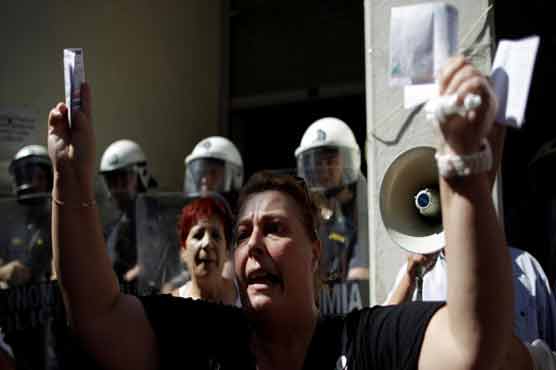Greek doctors unpaid for five months

A sign taped to a wall in an Athens hospital appealed for civility from patients.

A sign taped to a wall in an Athens hospital appealed for civility from patients.